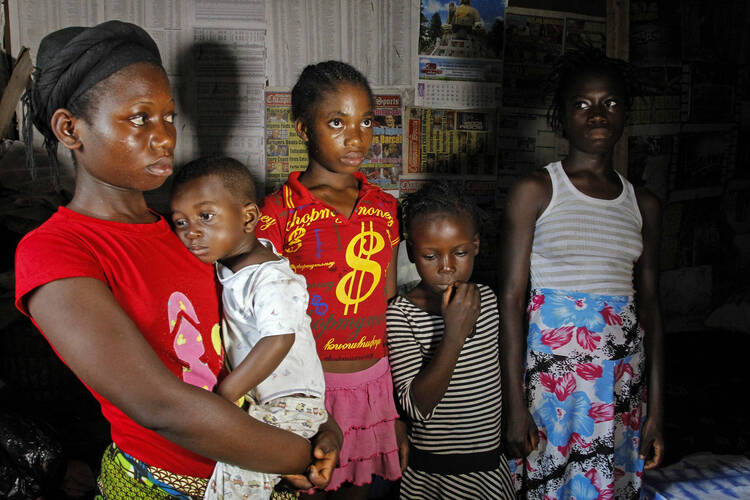The first days of January always cast their shadow over the coming year’s events, just as the final dwindling days of December encompass and focus the year just ending. We’re meant to look back, if not in anger, at least with relief that we got through it, and it seems, each year with an increasing sense that things are getting worse, not better.
At this time of year, there seems always to be a human disaster to shock us. Ten years ago it was the Indian Ocean tsunami; this year it was the Asian Airlines air disaster, the attacks in Paris, Ebola, the Islamic State and the latest horrors endured by desperate refugees adrift on the Mediterranean. But the light that shone over Bethlehem gestures to the divine wisdom born into this chaos, one that simultaneously attracted human wisdom from a far country, bearing gifts.
It is hard, as I write in these first days of January, so short and dark in this hemisphere, to trust that wisdom or to see that light. There is a lot of shadow.
Where, then, might light pierce the shadow in 2015?
The anticipated encyclical of Pope Francis on ecological concerns will be one source of bright light. We know that it will pull no punches; this pope doesn’t do that. It will be an energizing challenge from a pontiff who has no intention of retreating into a privatized world of religious purity, untainted by messy reality. One Jesuit writer in the United Kingdom predicts that the pope will once again underline urgency, reminding world leaders that inaction is not an option and that “the time to find global solutions is running out.”
As he has stated about challenges posed by other social issues, like human trafficking and the refugee crisis, the pope will stress the need for collective action and trust. A clear link will be drawn between poverty and care for creation, between human ecology and natural ecology. The encyclical will be controversial and will ask much of each of us and of the church in the United Kingdom and everywhere.
Additional light comes from those in the front line of the fight against Ebola, especially a young Glaswegian nurse. Returning for Christmas from service in Sierra Leone, she fell ill with Ebola herself and was immediately transferred from Glasgow to a specialist hospital in London. The U.N. secretary general and the head of the U.N.’s anti-Ebola unit think there is a long way to go in combatting this outbreak and that the world’s response has been inadequate. But there are people like this young health professional who will forgo Western home comforts to help the sufferers. Little of their bravery and selflessness made its way into the screaming headlines that focused entirely on this first “outbreak,” as one tabloid put it, of Ebola in the United Kingdom.
In Britain, in 2015 there will be a general election in May. All the early media commentary agrees in predicting that the outcome is entirely unpredictable. One intriguing forecast sees the vibrant Scottish National Party entering a coalition, holding the balance of power in the House of Commons and demanding further devolution of powers to Edinburgh, as promised but not delivered in the days before September’s no vote in the referendum.
Yet what draws the eye is the issue of poverty, particularly among the working poor. People are speaking out. The Anglican archbishop of Canterbury in December said that he found the predicament of poor working families in a way more shocking than what he’d seen in a recent visit to Congo. This might not be the only, or even the main, issue in the election, but it will be prominent and the voice of faith will be heard.
When those who follow Christ in the Ignatian tradition look back, for example, at the end of the day or at the end of the year, they know always to look forward in hope too. Using St. Ignatius’ popular prayer exercise the examen, which takes the stuff of our daily existence as the matter for prayer, they know to begin their review by asking the good Spirit for light to see their recent lives as God did and to end it by looking ahead consciously in a hopeful spirit, avoiding fear.
If we have noticed God’s wisdom and light in what we have reviewed, we can confidently expect more of the same as we look ahead. Remembering to be grateful helps us to avoid being overcome by those shadows and to be just a little bit better equipped to bring wisdom and light into the real world of 2015.








